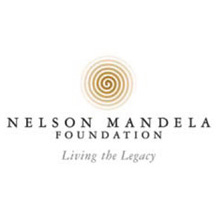
Nov 20, 2008 – “The family is collapsing in many areas of the country. Some children are living on their own. Drugs, alcohol and transactional sex in communities undermine the ability of students to learn.”
These are just some of the problems facing the education sector in South Africa, as was expressed by one of the participants in an education dialogue, held at the Nelson Mandela Foundation today.
Attended by stakeholders, and potential partners to make up an advisory board for the Nelson Mandela Foundation education dialogue moving forward, the dialogue was held with the aim of making schools safe and caring environments where children can learn and develop. The dialogue paid particular attention to the safety and security of learners, xenophobia and the vulnerability of girls.
Facilitated by education co-ordinator, Sekete Khanye of the Foundation, the dialogue highlighted a number of problems that currently face learners in South Africa. The aim was to look for the root causes of these problems and ways to eliminate them.
Presentations on the education landscape of KwaZulu-Natal, the North West and the Free State all alluded to the lack of safety many learners face, in particular girl children.
Dr Simon Mbokazi, senior general manager of education service delivery management from KwaZulu-Natal, noted that the province has a number of hotspots – characterised by access to firearms and alcohol, with a high prevalence of gangs – compromising the safety of students.
“In the last two weeks, two schools, both in deep rural areas, were ransacked and totally destabilised,” Mbokazi said. “This comes at a particularly difficult time for students, particularly Grade 12s, as they are writing exams. Despite this destabilisation, exams had to continue.”
Chief Director: Curriculum and Professional Support Faith Ndaba, from the Department of Education in the Free State, highlighted the plight of girls in rural areas being preyed upon by farm owners and farm workers.
“Teachers struggle to commute to the farm schools, often leaving the students unattended. This leaves the learners vulnerable to sexual predators,” Ndaba said.
In addition, she highlighted unemployment, and a lack of education among parents, in certain communities as perpetuating gender-stereotyped roles in those communities.
“Young women position themselves along the major trucking routes to prostitute themselves to the truck drivers. As a result, there is a high prevalence of pregnancy and HIV infection along those routes,” Ndaba added.
Deputy Director General Abbey Seakamela, from the North West Department of Education, warned people not to exaggerate the issues surrounding safety and security in our schools.
“I want to challenge the perception that our schools are in trouble,” Seakamela said. “A few incidents get blown out of proportion.”
However, he acknowledged that problems exist, noting that foreigners and girls were often targeted.
The key points coming out of the discussion ranged around better communication among the provinces to start to develop national best practices for education.
In addition, it was felt that parents need to play a key role in starting the education process.
The meeting put together a list of key objectives the advisory board would need to address.
“The dialogue was a success,” said Khanye. “We had two aims: the first was to set up the advisory board; the second was to elevate the importance of working together at the level of service provision related to safety and security at schools, which is directly related to the mandate and strategic advantage of the Nelson Mandela Foundation.”
Dr Vijay Reddy, executive director of education, science and skills development at the Human Sciences Research Council (HSRC), also complimented the Foundation’s role in organising the dialogue.
“The Foundation is a very particular and special space where one could do particular interventions that one could not undertake in other spaces,” he said.
Along with the HSRC and the representatives from the three provincial departmnets of education, the dialogue was attended by representatives from: the Nelson Mandela Institute; the National Professional Teachers Organisation of South Africa; the South African Council of Educators; Valued Citizens (a non-government organisation that provides citizenship education at primary and high school level); the Commision for the Rights of Cultural, Religious and Linguistic Communities; the Pan South African Language Board; Unicef (the United Nations’ children’s rights organisation); Soul City; the GM South Africa Foundation (which pioneers models for community development); the Bureau of Crisis Prevention and Recovery; The Sunday Times as well as the Mail & Guardian; and the South African Human Rights Commission.